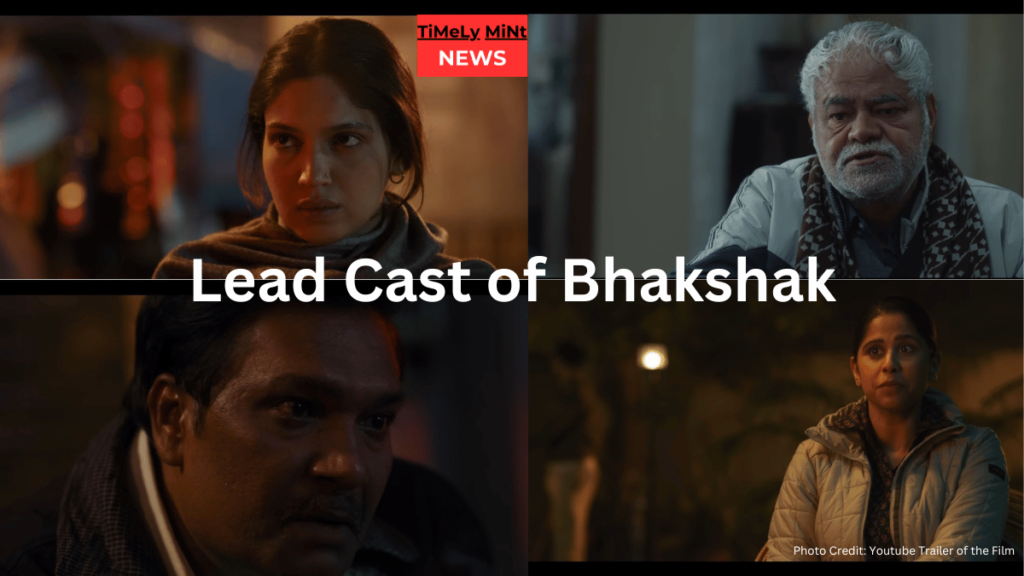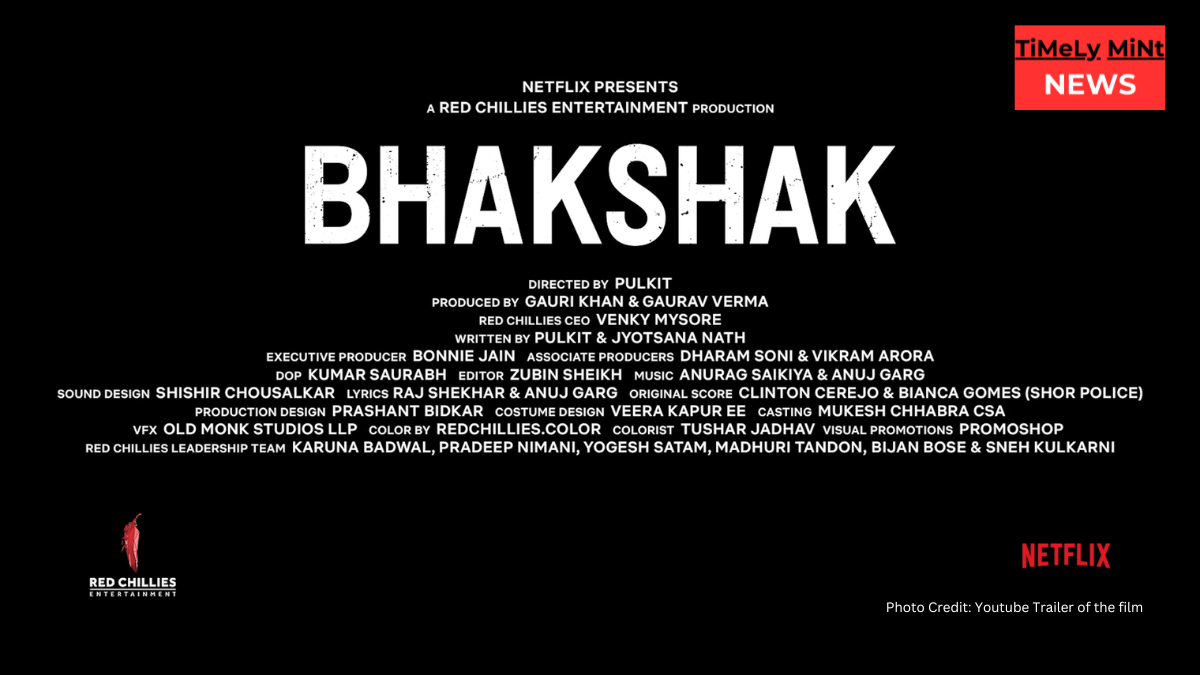Introduction
Streaming now, Bhakshak on Netflix, a film that asks the most uncomfortable question – why does the system consistently fail to safeguard the fundamental rights of the vulnerable?
The recently released Netflix crime drama “Bhakshak” holds up a mirror to society, forcing us to confront the ugly realities that fester in our system. This hard-hitting Bhumi Pednekar starrer goes beyond thrills to highlight the deeper malaise that allows predators to exploit the helpless.
Based on the horrific Muzaffarpur shelter home abuse case, the film tells the story of Vaishali, an intrepid journalist determined to expose the rampant torture and sexual abuse of girls at a state-run shelter. Her explosive investigation tears apart the systemic apathy and corruption that enables such predators to roam free.

Performances By Cast and Other Technical Aspects
Bhumi Pednekar delivers a powerful performance as the determined journalist Vaishali Singh who risks everything to uncover abuse at a girls’ shelter home. Her portrayal of a fiercely committed reporter fighting entrenched corruption is authentic and impactful.
Veteran actor Sanjay Mishra shines as Vaishali’s world-weary but supportive cameraman Bhaskar Sinha. His chemistry with Pednekar makes their mentor-protege bond feel lived-in and real.
Sai Tamhankar brings quiet dignity to her performance as the upright police officer Jasmeet Kaur. Her restrained portrayal serves as an effective counterpoint to Pednekar’s fiery crusading journalist.
Aditya Srivastav is suitably menacing as the predatory shelter home owner Bansi Sahu. His smirking villainy simmers with barely concealed violence, making him a terrifying antagonist.
The rest of the supporting cast like Surya Sharma, Tanisha Mehta and Chittaranjan Tripathy give the film further heft with their solid performances.
On the technical front, cinematographer Kumar Sourabh crafts a gritty, grounded visual language that complements the film’s hard-hitting storytelling. The muted colour palette and handheld camerawork create a documentary-like, urgent aesthetic.
Zubin Sheikh’s editing maintains a taut pace, ratcheting up the tension as the investigation intensifies. Clinton Cerejo and Bianca Gomes’s background score accentuates the ominous mood.
Overall, Bhakshak benefits from committed performances by its lead cast and a technical crew that realizes director Pulkit’s vision of unflinching, bold filmmaking.
The film reflects the exploitation of the weakest sections
As the details of organized abuse at the shelter come to light, we are shaken to the core. Young girls who have already experienced trauma are subjected to unimaginable cruelty for years under the very roof that was supposed to protect them. Their helpless cries for help go unheard. This injustice mirrors the suffering of the most marginalized groups in the country. Children, women and the impoverished often bear the brunt of violence from those in positions of power.
It exposes our collective failure as a society
When Vaishali breaks the fourth wall and directly blames the indifferent audience, she essentially accuses all of us. We are all complicit in this failure through our apathy and inaction. As citizens, we have the duty to demand accountability from the system. Our silence and indifference enable injustice.
The film highlights deep patriarchal biases
Vaishali’s struggles in her personal relationships underscore the deeply entrenched patriarchal mores that restrain women from realizing their full potential. Her fights to assert her independence in the face of backlash mirror what women across the country face when stepping out of prescribed gender roles. It highlights the invisible shackles that keep half the population tied down.
It shows a mirror to the media industry
The film also critiques the media industry’s motivations. Rather than speaking truth to power, news channels prioritize TRPs and profits over ethics. The portrayal of Vaishali’s channel head asking her to tone down her reportage on the shelter home crimes reflects this tension. This holds up an uncomfortable mirror to media houses putting sensationalism over public interest.
The systemic failures plague our nation
Ultimately, Vaishali’s crusade against predators and enablers in the system represents the much larger rot in governance plaguing the country. Her explosive findings on the shelter home is one more reflection of the deep-rooted corruption and apathy destroying state institutions. Without accountability and reform, the weak will continue being exploited by those in power.
The film calls for soul-searching and collective action
It awakens our conscience on injustice
By depicting grave crimes against helpless children, “Bhakshak” shakes viewers out of apathy and indifference. We can no longer claim ignorance and pretend these problems don’t exist. The film compels soul-searching on why we tolerate such oppression and look the other way. We must ask ourselves – what is my role as a citizen in fighting this systemic injustice?
It highlights the need for social reform
The film stands out by using cinema’s power to spark conversations on issues that demand redressal. We must carry forward its message to demand action against corruption and misgovernance. Pressure the government to prioritize the safety and rights of the marginalized. Ensure stringent deterrence and punishment for predators who exploit the helpless.
It shows we need voices that speak truth to power
The film puts the spotlight on ethical journalism and activism. We need more people like Vaishali – driven by moral courage rather than vested interests. Journalism that scrutinizes the establishment rather than works in cohorts with it. Without such voices that speak truth to power, we cannot call ourselves a progressive democracy.
It calls for collective action against injustice
The pathos and raw emotion depicted in “Bhakshak” should stir us into action. We can no longer remain silent bystanders but must stand up collectively against injustice. The film’s clarion call for reform applies to all of us – lawmakers, law enforcers, journalists and citizens. We must join hands across ideological divides in service of justice, empathy and human rights. Only then can we aspire to be a society guided by moral principles, not just laws.
The Final Monologue cum commentary by Bhumi in the Final scene needs a special mention. The scene and perhaps the entire film holds up a mirror to society to make us reflect – if we stay silent, we remain complicit in injustice. We must heed its message because the cost of apathy is far too high for our nation to pay.
If you would like to read about the real-life incident, you can do so on Wikipedia called, “Muzaffarpur shelter case“














